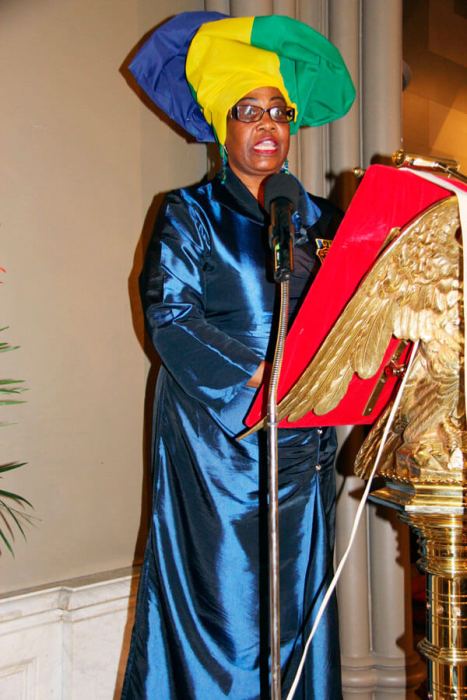As the United Nations General Assembly on March 27 reaffirmed Ukraine’s unity and territorial integrity by adopting a measure underscoring that the mid-March referendum in Crimea that led to the peninsula’s annexation by Russia “has no validity,”,St. Vincent and the Grenadines has expressed a long list of concerns for abstaining on the vote.
By a vote of 100 in favor to 11 against, with 58 abstentions, the 193-member General Assembly called on all States, international organizations and specialized agencies not to recognize any alteration of the status of the Autonomous Republic of Crimea and the city of Sevastopol on the basis of the March 16 referendum.
The General Assembly also voted to “refrain from any action or dealing that might be interpreted as recognizing any such altered status.”
In explaining her country’s abstention on the vote, St. Vincent and the Grenadines Ambassador to the United Nations, I. Rhonda King said Kingstown has viewed the recent events in Crimea and Ukraine with “great concern.”
She reiterated the call made by the Caribbean Community (CARICOM) in a March 5 statement calling for the “pacific settlement of disputes and respect of Ukraine’s sovereignty and territorial integrity.”
“Secessionist referenda, and referenda on sovereignty by ethnically or historically distinct inhabitants of a particular geographic space, should not be manipulated or selectively accepted by would-be imperial powers,” King asserted.
“We note the sad irony that those most supportive of Kosovo’s unilateral declaration of independence now reject that of Crimea; while those with the strongest arguments against the ICJ (International Court of Justice) decision on the legality of the Kosovar UDI now cite it approvingly,” she added.
In addition, the Vincentian envoy said the Ralph Gonsalves administration also noted that “those who have advised Argentina to take ‘careful note’ of views of 99 percent of the residents in the Islas Malvinas are now branding as invalid the opinions of 97 percent of the residents of Crimea.”
She said St. Vincent and the Grenadines “recalls that the principles advanced to justify intervention in Ukraine are eerily similar to those posited 31 years ago in the context of our CARICOM neighbor Grenada.
“However, this time, the legal defenders and dissenters have switched places,” she said.
King said St. Vincent and the Grenadines has “long advocated and advanced the principle of territorial integrity, even in the case of ongoing civil war and sectarian unrest.”
Similarly, she said her country “stoutly defends” Article 2(4) of the U.N. Charter, which prohibits the threat or use of force against the territorial integrity or political independence of any state.
Additionally, King said St. Vincent and the Grenadines view the principle of self-determination for non-implanted populations – “particularly in the context of decolonization – to be sacrosanct.”
“Unfortunately, the nature of today’s resolution, and the arguments of its chief proponents have called into question the universal and consistent applicability of international law in these and similar instances,” the U.N. ambassador said.
“Despite our real and continuing concerns with the events that have taken place in Crimea and Ukraine, we view today’s resolution as motivated more by the principals than principles,” added King, stating that” many of the major powers on either side of this particular dispute have reversed their longstanding positions on similar conflicts and are now on record as contradicting themselves, notwithstanding their efforts to find legal and factual distinctions.”
She said lamented that the General Assembly has regrettably “failed to consider the historical context of this particular geo-political dispute and the nature of the recent change of regime in Ukraine.”
King, therefore, said these, among other, concerns have “compelled St. Vincent and the Grenadines to abstain on this resolution.”
Jamaican diplomat Shorna-Kay Marie Richards said her delegation had abstained “because the complexity of the situation in Ukraine required the international community to act in a balanced manner,” according to the U.N.
“While Jamaica supported the promotion of the rule of law and Charter principles, such as non-use of force, the resolution’s adoption would only delay the quest for a peaceful solution,” it said.

























